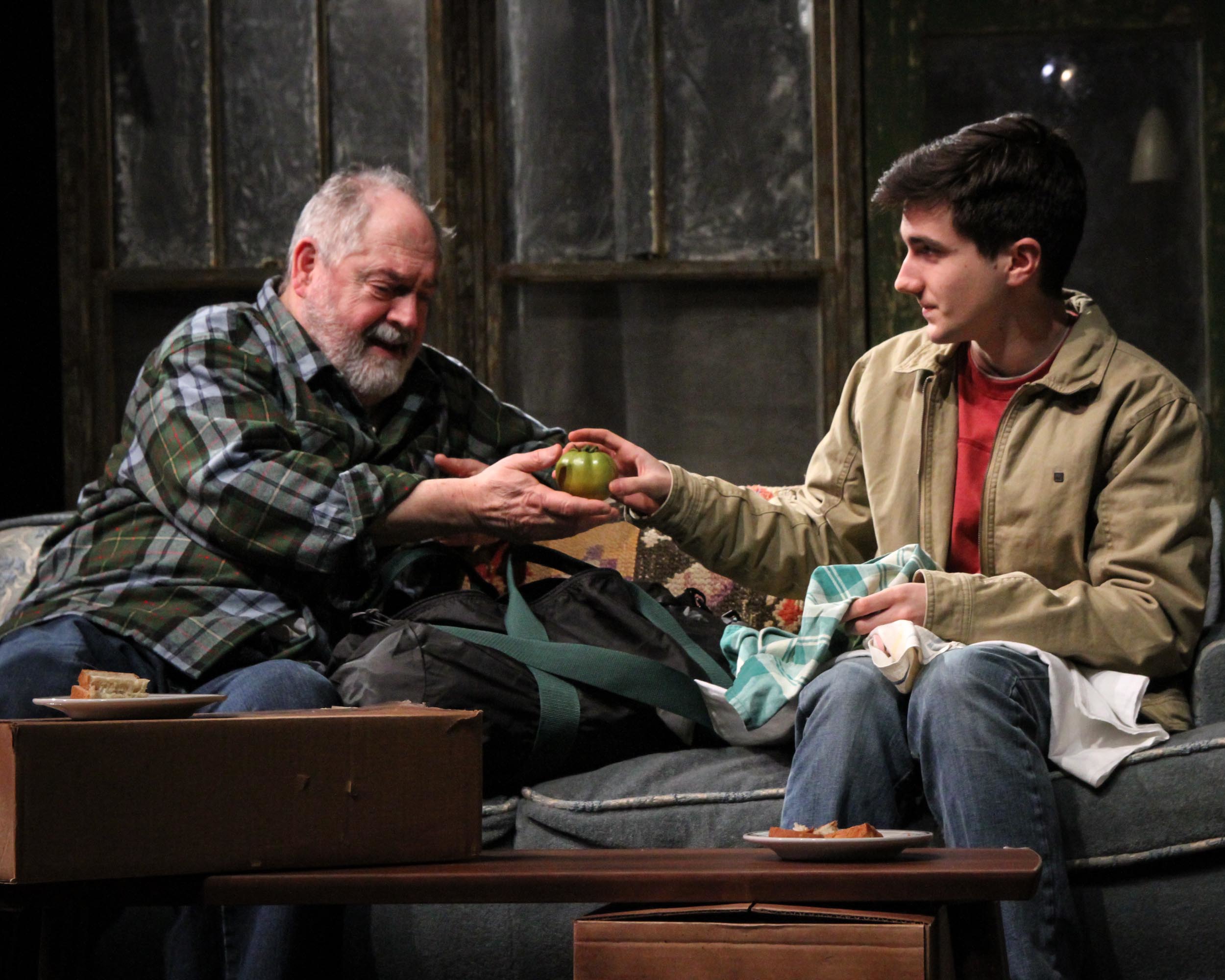A Great Wilderness
Seattle Repertory Theatre, 155 Mercer St. (Seattle Center), 443-2222, seattlerep.org. $12–$65. 7:30 p.m. Wed.–Sun., plus some Wed. & weekend matinees. Ends Feb. 16.
A few decades ago, The New York Times ran a front-page photo showing women marching in Spain with a banner that translated to “Spanish Mothers Love Their Gay Sons More Than God.” The same cannot be said for the two American mothers in Samuel D. Hunter’s Rep-commissioned drama (a world premiere). In this uncomfortable work, an aging “conversion therapist” named Walt (Michael Winters) is contracted to cure a gay high schooler of homosexuality through scripture and friendly bonding at his Idaho camp. Within a few minutes Daniel is gone—off on a walk from which by nightfall he still hasn’t returned. In Scott Bradley’s shabbily furnished A-frame cabin, whose rafters soar like a Gothic cathedral, the boy’s frantic mother Eunice (Mari Nelson), Walt’s friends Abby and Tim (Christine Estabrook and R. Hamilton Wright), and no-nonsense ranger Janet (Gretchen Krich) come and go, conversationally unpacking the milestones of Walt’s life like the contents of a rucksack. Who is this crumbling, frustrated guy, and what did he do with Daniel? These are the twin engines that dutifully propel us into the depressing world of evangelism and homophobia.
Hunter has been lauded for plays that humanize characters we theatergoers might disdain, including an obese recluse (The Whale) and a fallen pastor (A Bright New Boise). Factors humanizing Walt are his dreaded imminent transfer to an old-age home, impending senility, and woeful backstory—plus the burly Winters’ cuddly portrayal. Director Braden Abraham makes Walt chipper and clumsy as he attempts to befriend the sullen Daniel (Jack Taylor), whose jaw visibly tenses with apprehension. Later, Eunice and Abby’s cruelly resigned attitude toward their gay sons becomes the villain in the room.
Still, however topical and well-acted, A Great Wilderness feels inconclusive. Hunter’s two-act play is crafted of mostly short scenes that often cut to black just shy of a revelation. This ratchets the mystery, but also feels manipulative; the characters are privy to what comes next, but we aren’t. Most conversations flow naturally and sometimes overlappingly. Yet when a soporific video advertising the amenities of the old-age home chimes in on the Babel-esque word-jam, Hunter seems to be saying it’s all folderol—underscored by Walt’s burning of dictionary pages to destroy our conventions of reality-as-imposed-by-language.
Outside the cabin, a fearsome forest fire is conveyed by L.B. Morse’s lighting and Obadiah Eaves’ infernally loud soundscape. Inside Walt’s pious, deluded enclave, the play is a disturbing tour of the closed mind. And for viewers who escaped, it’s a vindication for getting out.
stage@seattleweekly.com








